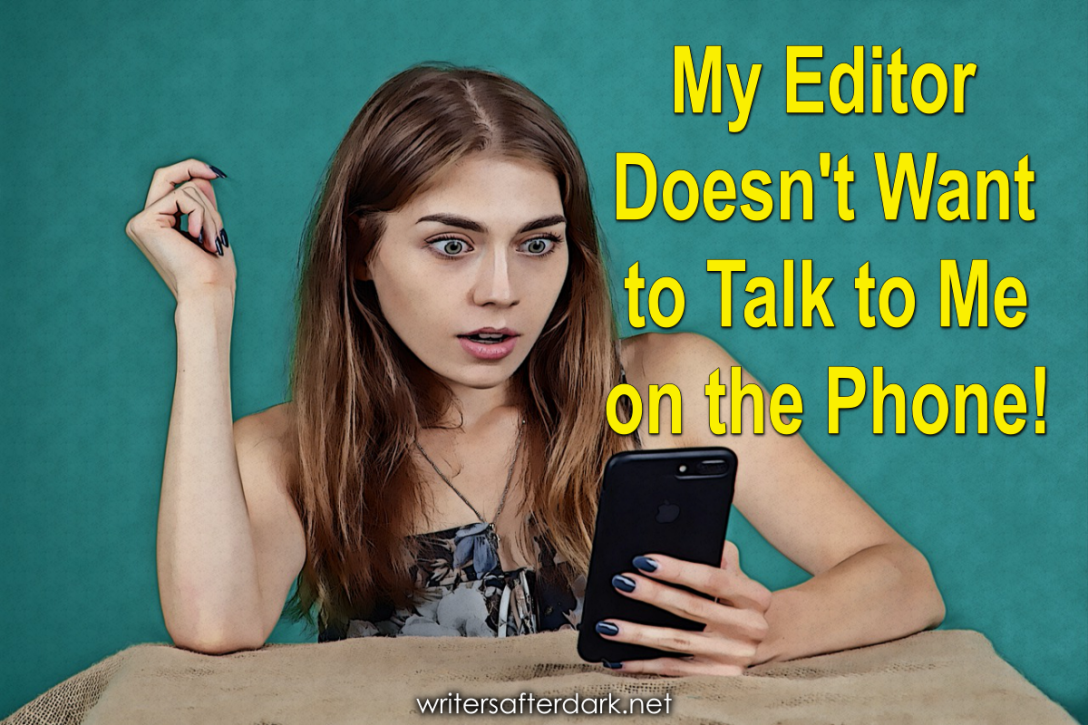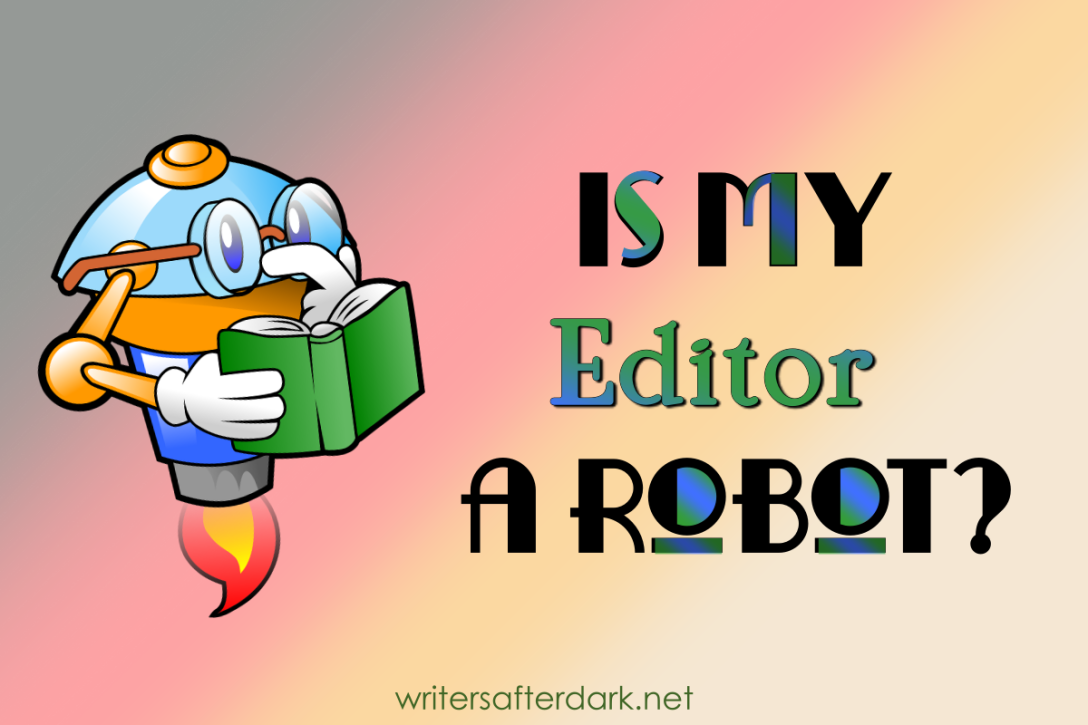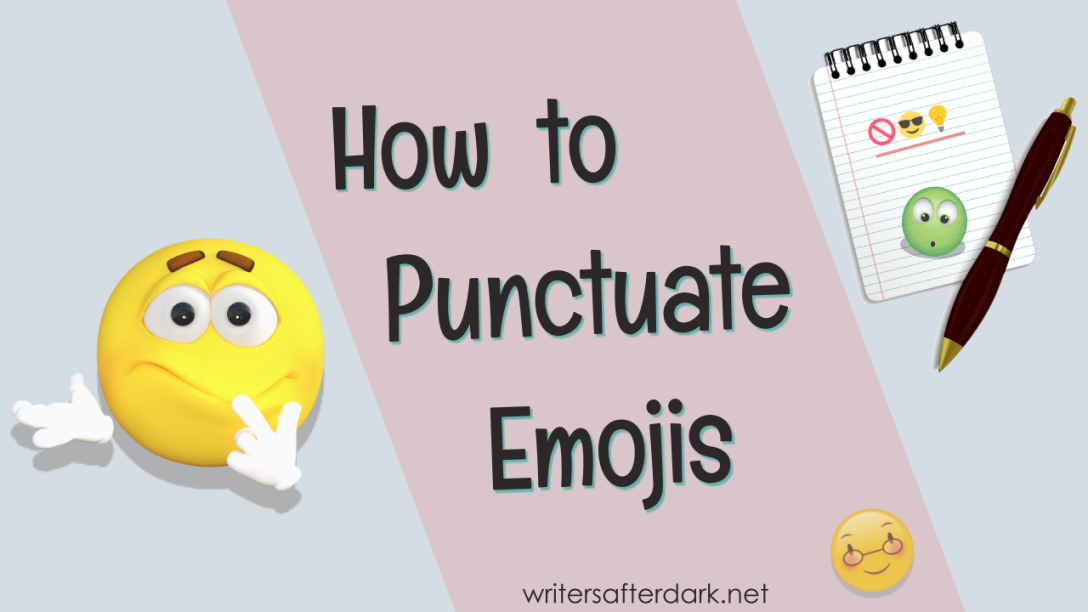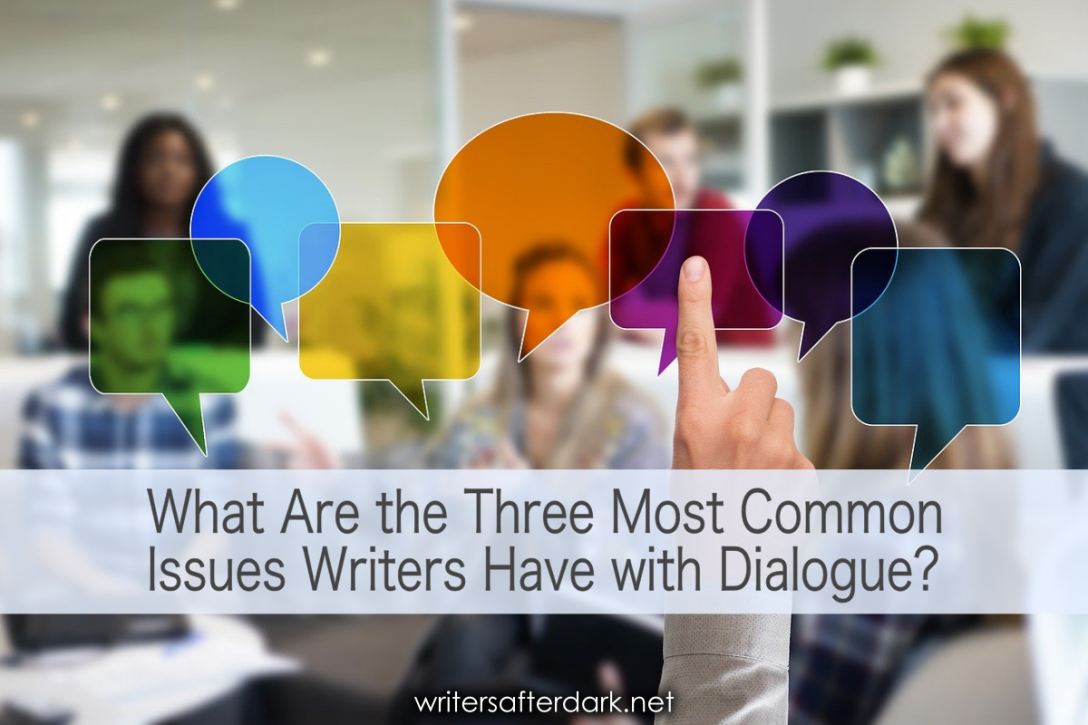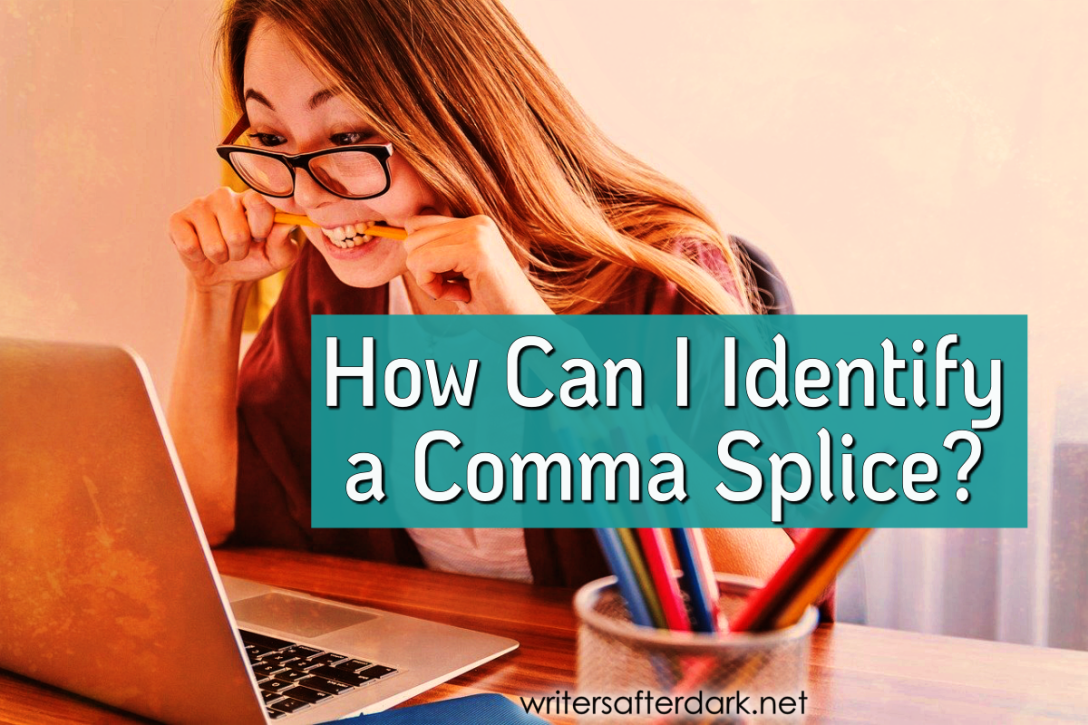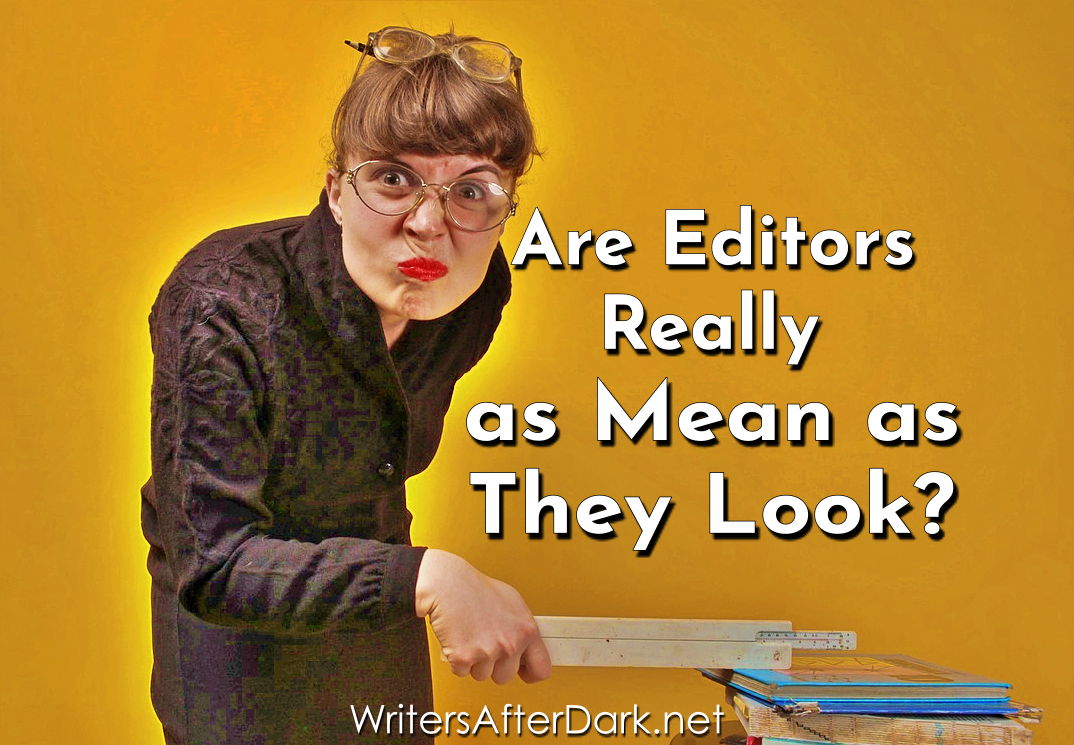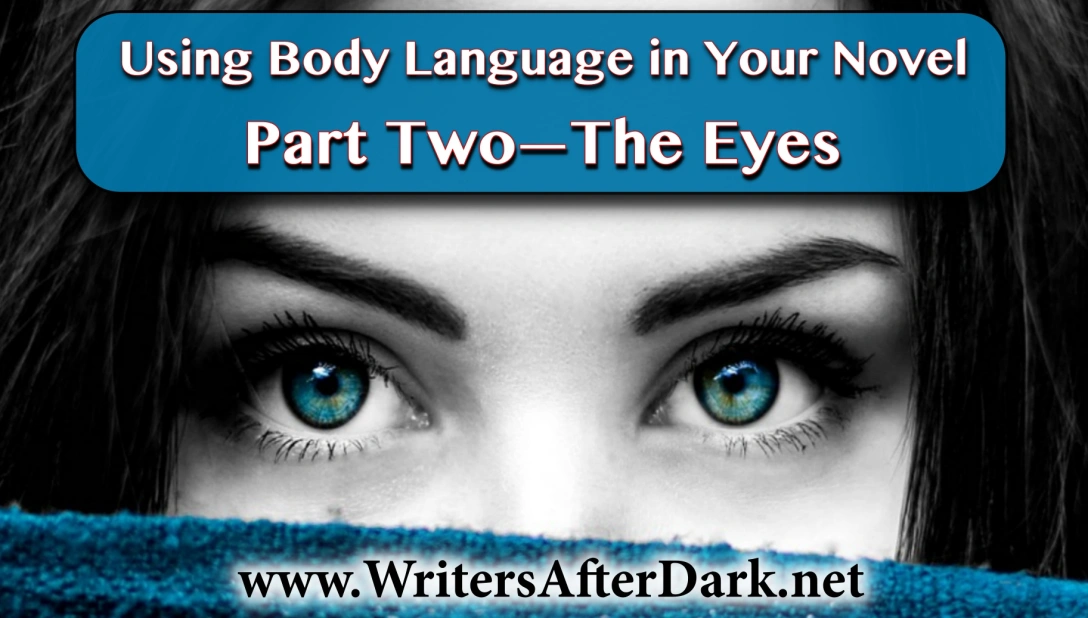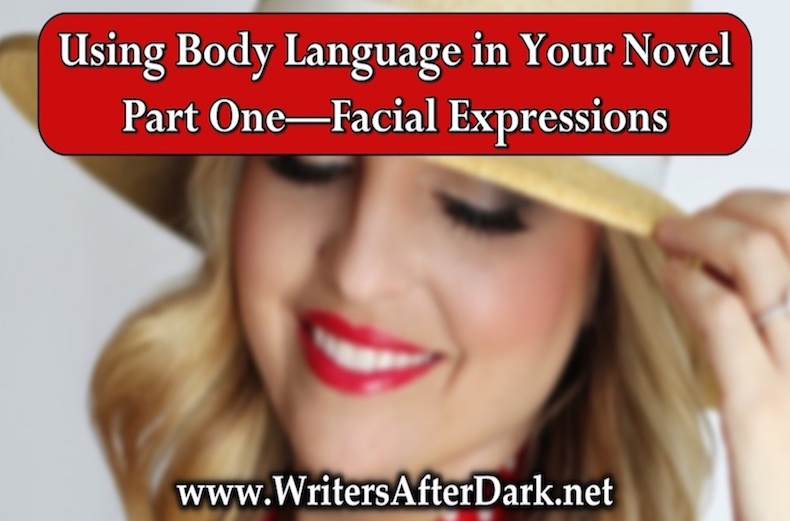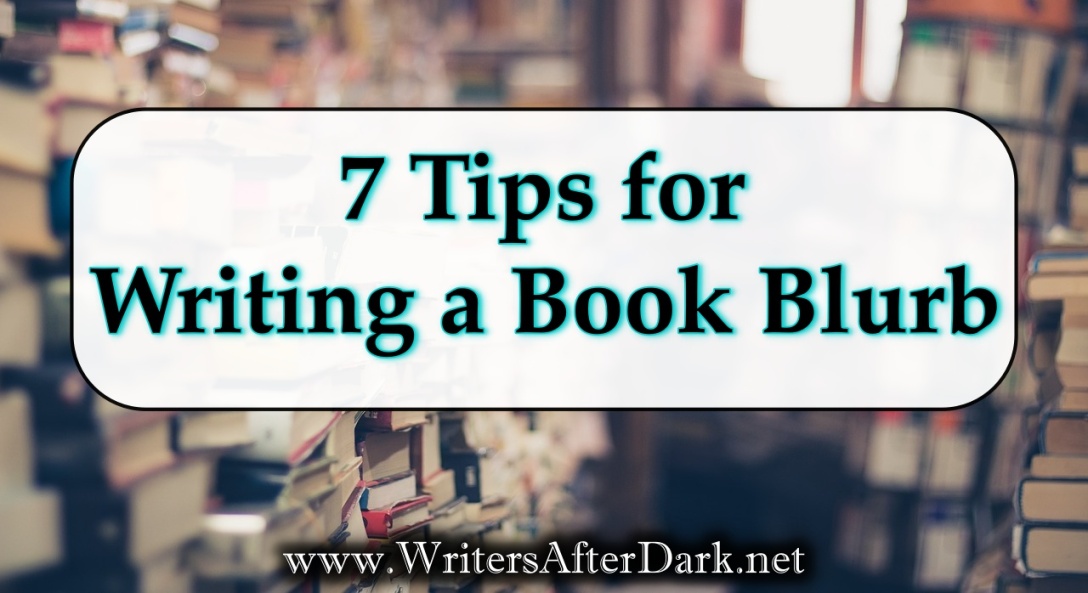Ask the Editor Series, Q16 Q: I’ve heard authors should always have a platform. Is that really necessary for success? A1: It can certainly make you look taller, and many tall people appear more commanding and therefore successful. Go, shawty! A2: Ohh . . . a social media platform. Well, that’s different. Think of your… Continue reading Does an Author Really Need a Social Media Platform?
Category: Grammar & Style
My Editor Doesn’t Want to Talk to Me on the Phone!
Ask the Editor Series, Q15 Q: I asked my editor if we could chat on the phone instead of using email, and she said no! The nerve of her. Why doesn’t she want to talk to me? A1: It’s not just you; she doesn’t want to talk to anyone. A2: On the rare occasion that… Continue reading My Editor Doesn’t Want to Talk to Me on the Phone!
Do You Have a Style Sheet for Your Book?
Ask the Editor Series, Q14 Q: My editor asked if I had a style sheet for my MS. I don't think it's any of her business what I wear. A1: Style is so subjective, don't you think? If you want to write in a ball gown or in pajamas (or a sheet), you do you. A2:… Continue reading Do You Have a Style Sheet for Your Book?
One or Two Spaces After a Period?
Ask the Editor Series, Q13 Q: My mother-in-law’s neighbor’s cousin said her hairdresser told her that we’re supposed to use only one space after the period at the end of a sentence. My world has turned upside down! Say it isn’t so! A1: Welcome to the 20th & 21st centuries. We’re glad you finally made it.… Continue reading One or Two Spaces After a Period?
Is My Editor a Robot?
Ask the Editor Series, Q12 Q: I think my editor is a robot. How can I tell if I've hired a real person or just some punk with a Grammarly program? A1: Boop boop beep boop beep beep . . . A2: It's only complicated if you haven't done your due diligence. Writers can be… Continue reading Is My Editor a Robot?
Am I an Overwriter?
Ask the Editor Series, Q11 Q: My editor says I overwrite. What is overwriting and how can I know I'm doing it? A1: Forwarding this question to the Department of Redundancy Department . . . A2: This one isn't complicated, and here are a few tricks to help you know what's what. Overwriting can come… Continue reading Am I an Overwriter?
Should Authors Edit Their Blog Posts?
Ask the Editor Series, Q10 Q: Should authors worry about editing their blog posts? A1: I mean, you get what you pay for . . . A2: There seem to be two sides to this one, and I'm not sure why it’s even a question because it shouldn't be that complicated. I can’t begin to… Continue reading Should Authors Edit Their Blog Posts?
How to Punctuate Emojis
Ask the Editor Series, Q9 Q: When I use emojis in my writing, where does the punctuation go? A1: 🤷🏽♀️ 🤔 🙋 ❓ A2: There seems to be a great debate on whether or not to even use emojis, but if you decide to use them, you should be consistent in how to punctuate around… Continue reading How to Punctuate Emojis
What Are the Three Most Common Issues Writers Have with Dialogue?
Ask the Editor Series, Q8 Q: What are the three most common issues writers have with dialogue? A1: Writing it. Writing it. Aaannnddd . . . wait for it . . . Writing it. A2: It’s complicated, but nobody knows why. I’m here to help you make it simpler. For some odd reason, people who… Continue reading What Are the Three Most Common Issues Writers Have with Dialogue?
How Can I Identify a Comma Splice?
Ask the Editor Series, Q7 Q: How can I identify a comma splice? A1: Is there a comma in the sentence? Then it’s possible. A2: This answer is complicated and completely easy at the same time, which makes it complicated to explain. And easy to explain. But allow me to try . . . These… Continue reading How Can I Identify a Comma Splice?
If I’m Really Careful, Do I Still Need an Editor?
Ask the Editor Series, Q6 Q: I’ve gone over my manuscript 100 times already. How could anything be left for an editor to fix? A1: Just one more time ought to do it, then. Or two. A2: There’s a saying: even editors need editors. Everyone needs an editor. At an editing conference I recently attended,… Continue reading If I’m Really Careful, Do I Still Need an Editor?
Do Editors Have Different Styles?
Ask the Editor Series, Q5 Q: Do Editors Have Different Styles? A1: Contrary to popular belief, editors have an amazing sense of style! It’s not all pursed lips and cat-eye glasses, you know. A2: Ohhh, that. This is every bit as complicated as you’d think, but the answer is “sort-of-yes,” and here’s some reassurance for… Continue reading Do Editors Have Different Styles?
How Do You Know If You Have a Bad Editor?
Ask the Editor Series, Q4 Q: How do you know if you have a bad editor? A1: Their style guide is I’m OK – You’re OK. A2: This happens on occasion, but if you’re on top of things, it’s not as complicated as you’d think. Let’s face it, with the whole idea of internet personas,… Continue reading How Do You Know If You Have a Bad Editor?
Should an Editor Fix Every Single Mistake?
Ask the Editor Series, Q3 Q: What “mistakes” shouldn’t you let your editor fix? A1: You should never let your editor fix “mistakes” unless they’re removing “scare” quotes from where they don’t “belong.” A2: Genuine mistakes, on the other hand, are another story, and it’s only sort of complicated. But here’s why. Language is a… Continue reading Should an Editor Fix Every Single Mistake?
I Have My Own Style Guide. Do I Still Need An Editor?
Ask the Editor Series, Q2 Q: If I have my own style guide, why do I still need an editor? A1: Because I need to pay my electric bill. Also, I need to feel special, and I can’t feel nearly as special if you know everything that I know. It’s science. A2: It’s complicated, and… Continue reading I Have My Own Style Guide. Do I Still Need An Editor?
Are Editors Really as Mean as They Look?
Ask the Editor Series, Q1 Q: Are editors really as mean as they look? A1: That’s ridiculous. Looks can be deceiving. We can be so much meaner. Just ask our children. A2: It’s complicated, and here’s why. Even the nicest editors don’t always look as friendly as they are, because . . . well, we’re… Continue reading Are Editors Really as Mean as They Look?
13 Funny #GrammarFails
Once again, the Internet provides an opportunity for you to feel better about yourself. Enjoy the "creative" use of these . . . words . . . Uh—spellings? 😉 ————— #1 ————— ————— #2 ————— ————— #3 ————— ————— #4 ————— ————— #5 ————— ————— #6 ————— ————— #7 ————— ————— #8 ————— ————— #9… Continue reading 13 Funny #GrammarFails
Blogs: I Don’t Edit Because Grammar is Dead.
Grammar is like Latin. A dead language reserved for science and law. Grammar rules are a lot like Kafka’s novel The Trial. You know you’ve done something wrong, everyone else seems to know you’ve done something wrong, but explanations of your crime are vague and difficult to understand. I wouldn’t deliver client’s work without editing.… Continue reading Blogs: I Don’t Edit Because Grammar is Dead.
How Long Should Your Book Be? — A Word Count Guide for Fiction
Length matters . . . am I right? If you don’t believe me, try reading the 200,000-word autobiography of a snail. Unless that’s the kind of kinky stuff you’re into, you’ll probably rather it was no more than two hundred words . . . no extra zeros allowed. Poor snail. The problem was he… Continue reading How Long Should Your Book Be? — A Word Count Guide for Fiction
Using Body Language in Your Novel, Part Four—Legs, Feet, & Bonus Tips
See Part One—Facial Expressions here. See Part Two—Eyes, Pupils, & Eyebrows here. See Part Three—Arms, Shoulders, & Posture here. As we know, developing a deep contrast of layers in our characters is crucial for a vivid reading experience. So in this final installment of Using Body Language in Your Novel, we’re going to continue all… Continue reading Using Body Language in Your Novel, Part Four—Legs, Feet, & Bonus Tips
Using Body Language in Your Novel, Part Three—Arms, Shoulders, & Posture
For this third installment of using body language in your novel, we’re going to focus on the upper body and ways to infuse an ordinary story with deep layers of . . . well, upper body language description O_O — I knew this experiment to write a post while tipsy would make things difficult,… Continue reading Using Body Language in Your Novel, Part Three—Arms, Shoulders, & Posture
Using Body Language in Your Novel, Part Two—Eyes, Pupils, & Eyebrows
Power Your Book Revisions by Using Macros
Revisions are a critical step in the writing process, but let’s face it, they can also just suck all the joy out of writing. Anything that can help speed up the process and increase focus is a good thing. One of my favorite tools is Macros. Unfortunately, like many writers, I was a master of… Continue reading Power Your Book Revisions by Using Macros
Using Body Language in Your Novel, Part One—Facial Expressions
How ’bout you and I get physical today? *Kat blows a kiss* Don’t worry; I’m not trying to be inappropriate with you (any inappropriateness happens naturally, there’s no try here, it’s all “do”—ask Yoda). I’m only trying to share some of my notes on getting physical. Or rather helping you add some layers to your… Continue reading Using Body Language in Your Novel, Part One—Facial Expressions
Using the Five Senses in Fiction, Part Two: Smell, Touch, & Taste
"I was afraid that by observing objects with my eyes and trying to comprehend them with each of my senses I might blind my soul altogether." —Socrates I say let's blind our readers' souls with our stories! What? Seems legit to me. *shrugs* As an author, your job is to transport your reader into the… Continue reading Using the Five Senses in Fiction, Part Two: Smell, Touch, & Taste
Using the Five Senses in Fiction, Part One: Sight & Sound
Good writing is like enjoying a hot cup of chocolate on a snowy morning. It activates all your senses: sight, smell, touch, taste buds, and even sound. I was going to say it’s like sex, but this is a daytime gig, and my mommy reads this, so . . . hot chocolate anyone? 😛 As… Continue reading Using the Five Senses in Fiction, Part One: Sight & Sound
Color Meanings for Writers
Using colors in your writing is a fantastic way to add symbolism and foreshadowing to your story. They can enrich your scenes by adding deeper meaning, variation, and help with mood amongst other things. Be sure to check out the upcoming post on using the five senses next Monday! This chart is a little gift… Continue reading Color Meanings for Writers
Creating Your Character – A Checklist
Unless you’ve been living under a rock, you’re aware that characters are kind of big deals when it comes to fiction writing. They’re the heart of the story and the main reason our readers gift us with hours of their lives. Let’s face it: without characters, the reading experience wouldn’t really be electrifying. Like,… Continue reading Creating Your Character – A Checklist
Parentheses in Fiction: Do They Break the Fourth Wall?
I like to use parentheses (you know, to share my extra thoughts and stuff). But only in non-formal situations (like blog-writing). In fiction, however, I avoid it like a plague. And I realize that may just be a personal preference, since I feel it would pull my readers out of the world I spent so… Continue reading Parentheses in Fiction: Do They Break the Fourth Wall?
How to Correctly Punctuate Dialogue for Novels
Writing dialogue is messy. Am I right? It has so many rules, it makes me wish I’d gone with my original plan in life. I’d intended to become an all-in-one supermodel-psychologist/part-time medical researcher. What? I thought I wanted to save people, discover things, and change the world wearing a tiara and killer heels. But the… Continue reading How to Correctly Punctuate Dialogue for Novels
7 Tips for Writing a Book Blurb
I’m here to help stop the madness. You know the one. The insanity that accompanies the “fun” of writing a book blurb. Attacking is more like it . . . I could stab it upside the head if it had one. But alas. Don’t let my bitterness get to you. In fact, use it to… Continue reading 7 Tips for Writing a Book Blurb
Why You Should Write Your First Draft Before Outlining Your Novel
I often say I suffer from CRD—Chronic Rewriting Disease, a term I made up because it seems at least 50% of my work needs to be rewritten. But that’s my writing process, and I accept it. Sure, I could be like many writers and outline my novel from the start . . . but… Continue reading Why You Should Write Your First Draft Before Outlining Your Novel
How to Keep Your Dialogue in Check
Being an author sounds like a pretty awesome deal, right? Pick a simple idea, type here, type there, and act like it all happened by magic. Some of you are probably tempted to embark on this path to becoming a published superstar. And you know what? You can do it. You’ve been writing for… Continue reading How to Keep Your Dialogue in Check
Free Outlining Worksheets and Editing Checklist for Writers
You can find writing advice on every corner of the Internet. That doesn't mean it's good advice, though. Research on the "process of writing" can be confusing, and it's always changing. Throw in the rate at which information is spread, and it's no wonder the writing tips or suggestions you get from your friends can… Continue reading Free Outlining Worksheets and Editing Checklist for Writers
Constraint and Creativity – A great story needs both
An author’s job isn’t just to string words into plots. An author must govern the words, wrestle them into place, make them do his or her bidding, and use their sounds to create rich, crystal clear thoughts. It’s no easy task. Often word-wrangling is like herding cats. Creative flow is often at odds with constraint.… Continue reading Constraint and Creativity – A great story needs both
The Efficiency Obstacles of Self-Editing
Two decades ago surveys suggested that 80% of Americans planned to write a novel. Ten years ago, the ease of e-publishing and low costs of book production created the opportunity for many writers to realize their dream. Unfortunately, just because one can self-publish doesn’t mean that one should self-published. I am not suggesting that book… Continue reading The Efficiency Obstacles of Self-Editing
3 Storytelling Mistakes to Avoid
So, you wanna write a novel? That's fantastic. You should! There's a reader out there who cannot wait to read what you have brewing inside that head of yours. Heck, I'm interested in your book. Storytellers are naturally intrigued by the many possibilities that our creative peers have to offer. And because of this, we're… Continue reading 3 Storytelling Mistakes to Avoid
Frequently Confused Words — #Free Cheat Charts for #Writers
As a writer, you already know that you don't know everything. You won't memorize all the rules, no matter how hard you try. And you won't remember all of those darn confusing words that love to torment you. But fear not. Here, at Writers After Dark, we've compiled several cheat sheets for you. Just for… Continue reading Frequently Confused Words — #Free Cheat Charts for #Writers
Making Your Character Relatable
There are two types of writers: plot-centric and character-centric. No matter which you are, you still have to portray relatable characters, or else, why should I care as a reader? Laura from Boats Against the Current shares some of her thoughts on creating a great character. Check it out! What makes a character relatable?… Continue reading Making Your Character Relatable
Are You Too Smart to Write Fiction?
People read fiction for enjoyment. An understatement? Sure, but an important consideration if your goal is popularity. The ability to draw others into another place or time and to create, in their mind, the experience of “being there” is an incredible talent. And like most amazing and beautiful things the genius is in the simplicity.… Continue reading Are You Too Smart to Write Fiction?
How to Find the Balance Between Showing and Telling
If you're a writer, you've heard this advice several times in your writing career: "show don't tell." But it's not as simple as it sounds, because surely, you can't show everything. No, you need a balance. And our friends over at XterraWeb have made some good points on this subject. Read on: Finding… Continue reading How to Find the Balance Between Showing and Telling
Why You Should Use a Developmental Editor
If you've ever wondered whether or not having a developmental, substantive, or content editor is beneficial, the answer is yes. Sure, you could get by with beta readers. But only if they do what a content editor or even the right critique partner can do. Choose your preferred name; the benefits are the same. Editor Lynda… Continue reading Why You Should Use a Developmental Editor
The Technique of FREEWRITING
Sometimes, the most difficult phase in writing is starting. To help overcome this problem, Michelle Wallace—a contributor at Insecure Writer's Support Group—shares a little bit about the "freewriting" technique. Read about it to see if it could be a solution to your "writing block." Freewriting What is freewriting? Wikipedia says: “Freewriting is a prewriting technique in which a person writes… Continue reading The Technique of FREEWRITING
All You Need to Know About POVs
Ever struggle to find the right voice for your manuscript? Sometimes, it's simply because we're writing our stories with the wrong point of view. And switching the perspective could be the answer you're looking for. The question is, what are the different POVs and what do they mean? Well, Harvey Chapman, over at Novel Writing… Continue reading All You Need to Know About POVs
3 Rules Every Writer Should Break
I like rules. Rules exist to keep chaos at bay. Personally, I don't like chaos. But sometimes my naughty side comes out to play, and I find my toes dipped in dangerous waters. Funny enough, the exhilarating change of pace can make way for amazing possibilities. Take writing for example. There seem to be… Continue reading 3 Rules Every Writer Should Break
5 Traps to Avoid With Dialogue Tags
Dialogue can make or break your novel. The dialogue concerns aren't just contained inside those " ", it's also the pesky little "tags" that go along with it. The Wise Ink Blog has a great article on what traps to avoid when it comes to dialogue tags. Read on: The 5 Traps of Dialogue Tags… Continue reading 5 Traps to Avoid With Dialogue Tags
How to Quit Writing Bad Scenes
Feeling stuck with your writing? Rufi Thorpe shares some tips on how to get over the bumps on the road holding you back from your amazing scenes! Check it out: How to Quit Bad Scenes: Writing Tips from Rufi Thorpe Sometimes I write a scene and it’s bad. Even after two published books, I am… Continue reading How to Quit Writing Bad Scenes
Me Can Self-edit
You’re a pretty talented writer. I’d bet a paycheck that you have some fairly witty shit going on in your novel. You’ve weaved a wonder of smart scenes, foreshadowing, and thematic allusions. You’re an author—the master of the narrative. And being that smart, well it makes it damn tempting to self-edit those very “limited” mistakes… Continue reading Me Can Self-edit


